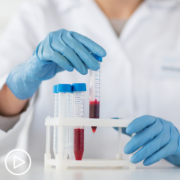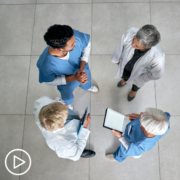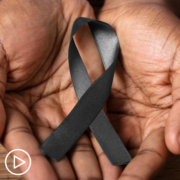Who Are the Members of a Prostate Cancer Care Team? from Patient Empowerment Network on Vimeo.
Prostate cancer expert Dr. Atish Choudhury explains which experts comprise a prostate cancer care team. Dr. Choudhury encourages patients to take an active role as a member of their care team.
Dr. Atish Choudhury is the Co-Director of the Prostate Cancer Center at Dana-Farber/Brigham & Women’s Cancer Center. Learn more about Dr. Choudhury here.
See More from Engage Prostate Cancer
Related Resources
Transcript:
Katherine:
So, who is typically on a patient’s prostate cancer healthcare team?
Dr. Choudhury:
Yeah. So, generally, the consultations here at Dana-Farber are multidisciplinary, with a medical oncologist, a radiation oncologist, and a urologic oncologist – so, a surgeon.
And so, if a patient is a good candidate for treatment to the prostate itself, then certainly, the surgeon and the radiation oncologist will talk about those treatments. And if the treatment is primarily with medications, then the medical oncologist will generally sort of take the lead. But there is often a role for local treatment to the prostate itself, even in cancer that’s spread beyond the prostate. So, that’s why the multidisciplinary consultation is so important.
Katherine:
Right. What do you feel is the patient’s role as a team member?
Dr. Choudhury:
Absolutely. So, I think it is very important for the patient to make sure that they come into these multidisciplinary meetings with questions around “What is my stage?” “What are the choices?” “What do I expect with treatment? Without treatment? With the various treatment options?” And basically, to take in the advice that they’re getting from the different members of the multidisciplinary team, and really think about how that’s impactful for them and their goals for themselves and what they really hope for the short term and for the long term.
I think what gets tricky is that there’s really very not-great sources of information that’s out there online and in YouTube videos and things like that, and I think it does play an important role for the patient to really understand what are the real high-quality sources of information – they tend to come from academic medical centers like ours. And certainly, we do encourage second opinions at other high-quality, high-volume centers so that the patients understand that the recommendations that are being made are generally made based on the based data and with people with a lot of experience at treating their kind of cancer.
Katherine:
What about caregivers? How do they fit into the team?
Dr. Choudhury:
Caregivers are critical because patients are not always the most expressive at, really, what their wants, and needs, and desires are. And especially when they’re on treatment, sometimes they’re not so expressive around the things that are bothering them on a day-to-day basis.
So, the caregivers are really important for communication with us to be kind of another set of eyes and ears in terms of kind of reporting what the patient’s symptoms are or what their goals or desires are that maybe they themselves don’t feel comfortable expressing. But they also play an important role in helping us with, kind of, lifestyle recommendations to the patient. Because certainly, much of the process of doing well with prostate cancer treatments is kind of lifestyle modifications – makes sure you’re eating healthy, exercising regularly – and the caregivers can play a very important role in making sure that patients stick to that kind of regimen as well.
Katherine:
I would think one of the issues for a patient too is that just having a cancer can be overwhelming and can make it difficult for them to even remember all the questions and concerns that they have.
Dr. Choudhury:
Yeah, that’s absolutely critical, and the caregivers play a very important role. So, often, people who are not partnered, for example, will just bring a friend to these appointments just to be that second set of eyes and ears.












